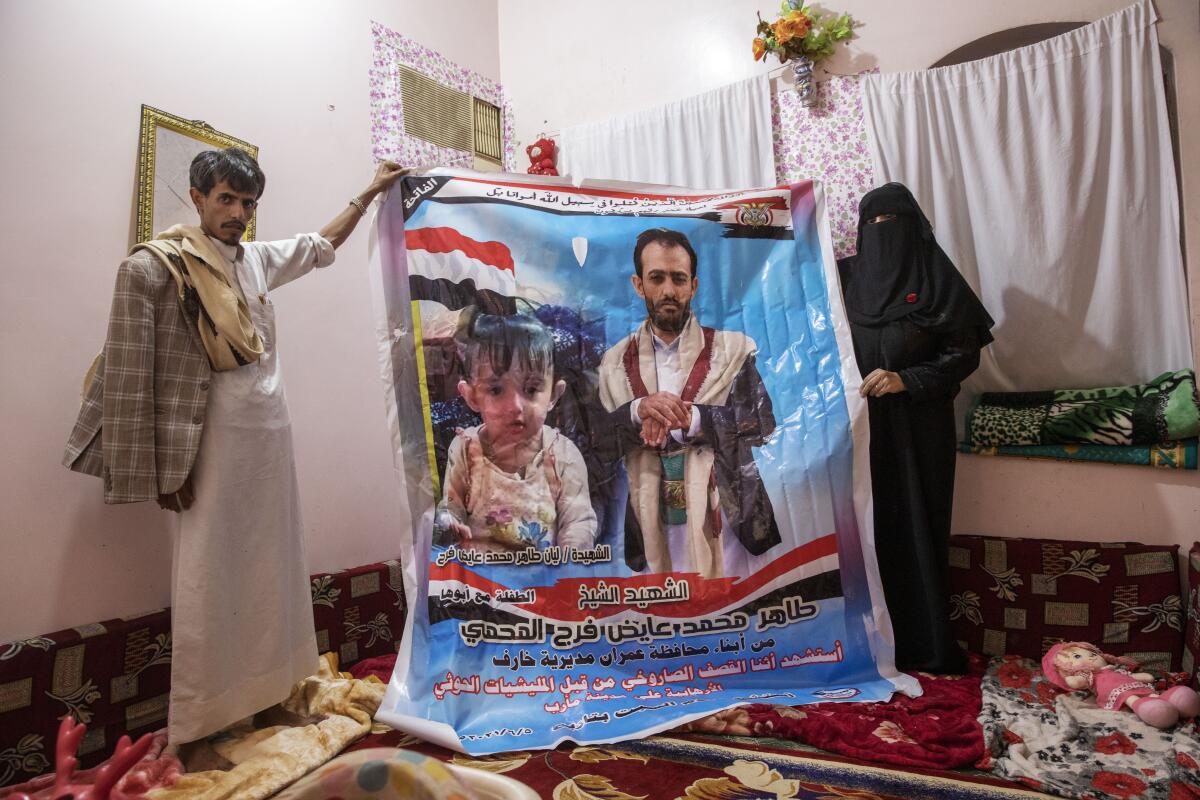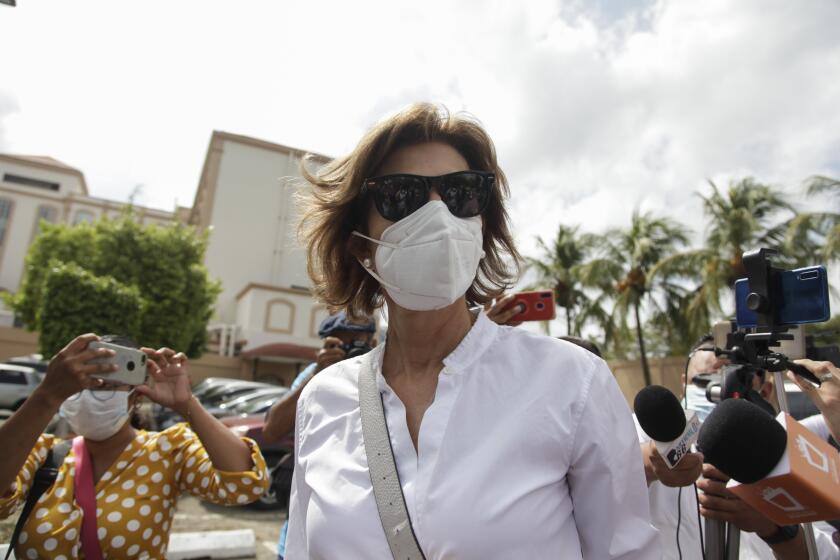A father and daughter’s grave marks the cost of Yemen’s war

MARIB, Yemen — Among the growing number of graves of the war dead in the cemetery of the Yemeni city of Marib, one tombstone stands out. It has two “martyrs” listed — a father and his young daughter.
Taher Farag and his 2-year-old, Liyan, were inseparable, their family says. So earlier this month, when Farag drove to the market to buy food for his wife to make lunch, he took Liyan with him.
Along the way, he stopped at a gas station in Marib’s Rawdah neighborhood to fill his tank. It was then, as they waited in line, that a ballistic missile fired by Yemen’s Houthi rebels hit the station, followed by the blast of an explosives-laden drone. The gas station went up in a ball of flame, incinerating vehicles in line.
At least 21 people were killed, including Farag and his daughter, in the June 5 attack, according to Liz Throssell, a spokeswoman for the United Nations High Commissioner for Human Rights.
Nicaragua’s arrests of opponents ahead of its November elections have spurred international condemnation and sanctions and may lead to tougher consequences.
It was the deadliest single attack in the monthslong grind of an offensive launched by Houthi rebels trying to capture Marib, the last stronghold of the Yemeni government in the country’s north. Since February, the rebels have been waging their assault, making only slow progress as Saudi-backed government fighters dig in to defend the city and Saudi airstrikes inflict casualties on the rebels.
The Houthis have fired ballistic missiles and sent drones into Marib as well, often hitting civilian areas and camps for displaced people. More than 120 civilians have been killed, including 15 children, and more than 220 wounded in the last six months, according to the government.
At home, Farag’s wife, Gamila Saleh Ali, heard the explosion. She didn’t think her husband and daughter were in danger — there are plenty of explosions in Marib. Still, she called his phone to be safe. There was no answer. She called again and again, each time no answer.
Then came the scream of her husband’s mother, who lives in the same building. She went out and found her family weeping. “I realized that Liyan and her father were martyred,” the 27-year-old said. “I returned to my room and prayed to God.”
“She was a fun-loving child,” she said of Liyan, while cradling the couple’s 10-month-old son. “Her dad adored her. He used to tell me, ‘Liyan is mine, and the boy is yours.’ ... He was so attached to her and she was so attached to her father.”
The 32-year-old Farag was once a farmer in his hometown of Kharif in northwestern Yemen, before fleeing with his family after the Iran-backed Houthis overran most of the country’s north in 2014, including the capital, Sanaa.
Like many driven from their homes, he settled in Marib, a seemingly safe refuge outside Houthi territory. He was able to find work driving a taxi. The area is now home to some 2.2 million displaced people, many of them crowded into camps on the city’s outskirts, according to official statistics.
They find themselves caught in one of the last active fronts in a war that has dragged on for nearly seven years, between the Houthis and the government, which controls much of the south and is backed by a Saudi-led coalition. The war has been largely stalemated for years but continues to wreak destruction, killing more than 130,000 people and spawning the world’s worst humanitarian crisis.
The same day as the strike on the gas station, an Omani delegation landed in Sanaa for talks with rebel leaders, including the group’s religious and military leader, Abdel-Malek al-Houthi. Pressure is mounting on the Houthis to stop their Marib offensive and agree on a nationwide cease-fire, paving the way for peace talks.
In the meantime, Marib’s residents endure the frequent blasts of missile and drone attacks.
Mohammed Ali al-Houthi, the head of the rebels’ Supreme Revolutionary Committee, said the missile strike targeted a military position and called for an independent investigation. He did not provide evidence.
The gas station is located several hundred yards from the perimeter fence of a military camp.
“The blast was strong, so strong. It sent me flying far,” said one worker at the station being treated at Marib’s main hospital. His right leg was broken, and he was burned over much of his body. He spoke on condition he not be named for the safety of family living in Houthi-held territory.
“We found shrapnel and remains of burned bodies. There were screams,” said Eissa Mohammed, who lives across the street.
Farag and Liyan’s bodies, charred beyond recognition, were found inside his burned-out taxi, hugging each other, officials and family said.
“So we buried them in the same grave,” said Farag’s younger brother, Ayed.
More to Read
Sign up for Essential California
The most important California stories and recommendations in your inbox every morning.
You may occasionally receive promotional content from the Los Angeles Times.











